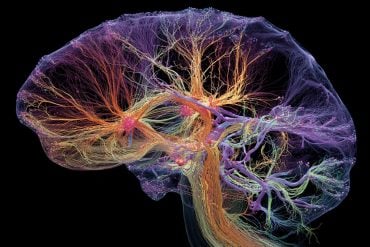Summary: A new study explores the use of tolerogenic dendritic cells (tolDCs) to restore immune balance in multiple sclerosis (MS) patients without compromising their immune system. The research reveals that MS patients’ immune cells have a pro-inflammatory signature, even after being modified for therapy.
However, the study identifies a drug, Dimethyl Fumarate, that can restore the normal function of these cells. This combination therapy shows promising results, potentially improving MS treatment without the side effects of immunosuppressants.
Key Facts:
- MS patients’ immune cells retain a pro-inflammatory state despite therapy.
- Dimethyl Fumarate can restore the function of tolerogenic dendritic cells (tolDCs).
- A combination of tolDCs and Dimethyl Fumarate improved outcomes in animal models.
Source: Josep Carreras Leukaemia Research Institute
Multiple Sclerosis (MS) is a long-term disease where the immune system mistakenly attacks the protective layer around nerve cells, known as the myelin sheath. This leads to nerve damage and worsening disability.
Current treatments, like immunosuppressants, help reduce these harmful attacks but also weaken the overall immune system, leaving patients vulnerable to infections and cancer.
Scientists are now exploring a more targeted therapy using special immune cells, called tolerogenic dendritic cells (tolDCs), from the same patients.
TolDCs can restore immune balance without affecting the body’s natural defences. However, since a hallmark of MS is precisely the dysfunction of the immune system, the effectiveness of these cells for auto transplantation might be compromised. Therefore, it is essential to better understand how the disease affects the starting material for this cellular therapy before it can be applied.
In this study, published at the prestigious Journal of Clinical Investigation, researchers examined CD14+ monocytes, mature dendritic cells (mDCs), and Vitamin D3-treated tolerogenic dendritic cells (VitD3-tolDCs) from MS patients who had not yet received treatment, as well as from healthy individuals.
The clinical trials (NCT02618902 and NCT02903537), led in Spain by Dr. Cristina Ramo-Tello and Dr. Eva Martínez Cáceres (Germans Trias i Pujol Research Institute), are designed to assess the effectiveness of VitD3-tolDCs, which are loaded with myelin antigens to help “teach” the immune system to stop attacking the nervous system.
This approach is groundbreaking as it uses a patient’s own immune cells, modified to induce immune tolerance, in an effort to treat the autoimmune nature of MS.
The study, led by Dr. Eva Martinez-Cáceres and Dr. Esteban Ballestar (Josep Carreras Institute), with Federico Fondelli as first author, found that the immune cells from MS patients (monocytes, precursors of tolDCs) have a persistent “pro-inflammatory” signature, even after being transformed into VitD3-tolDCs, the actual therapeutic cell type.
This signature makes these cells less effective compared to those derived from healthy individuals, missing part of its potential benefits.
Using state-of-the-art research methodologies, the researchers identified a pathway, known as the Aryl Hydrocarbon Receptor (AhR), that is linked to this altered immune response. By using an AhR-modulating drug, the team was able to restore the normal function of VitD3-tolDCs from MS patients, in vitro.
Interestingly, Dimethyl Fumarate, an already approved MS drug, was found to mimic the effect of AhR modulation and restore the cells’ full efficacy, with a safer toxic profile.
Finally, studies in MS animal models showed that a combination of VitD3-tolDCs and Dimethyl Fumarate led to better results than using either treatment on its own. This combination therapy significantly reduced symptoms in mice, suggesting enhanced potential for treating human patients.
These results could lead to a new, more potent treatment option for multiple sclerosis, offering hope to the millions of patients worldwide who suffer from this debilitating disease. This study represents a significant step forward in the use of personalized cell therapies for autoimmune diseases, potentially revolutionizing how multiple sclerosis is treated.
Funding: This research has been partly funded by public funds from the Spanish Government (ISCIII, FEDER and MICINN) and the EU Horizon program (INsTRuCT and RESTORE projects). No AI tools have been used in the production of this text.
About this immunotherapy and multiple sclerosis research news
Author: Helena Díaz
Source: Josep Carreras Leukaemia Research Institute
Contact: Helena Díaz – Josep Carreras Leukaemia Research Institute
Image: The image is credited to Neuroscience News
Original Research: Open access.
“Targeting aryl hydrocarbon receptor functionally restores tolerogenic dendritic cells derived from patients with multiple sclerosis” by Cristina Ramo-Tello et al. Journal of Clinical Investigation
Abstract
Targeting aryl hydrocarbon receptor functionally restores tolerogenic dendritic cells derived from patients with multiple sclerosis
Multiple Sclerosis (MS) is a chronic disease characterized by dysregulated self-reactive immune responses that damage the neurons’ myelin sheath, leading to progressive disability.
The primary therapeutic option, immunosuppressants, inhibits pathogenic anti-myelin responses but depresses the immune system.
Antigen-specific monocyte-derived autologous tolerogenic dendritic cells (tolDCs) offer alternative therapeutic approaches to restore tolerance to auto-antigens without causing generalized immunosuppression.
However, immune dysregulation in MS could impact the properties of the monocytes used as starting material for this cell therapy.
Here, we characterized CD14+ monocytes, mature dendritic cells (mDCs) and Vitamin-D3-tolDCs (VitD3-tolDCs) from active, treatment-naive MS patients and healthy donors (HD).
Using multi-omics, we identified a switch in these cell types towards proinflammatory features characterized by alterations in the AhR and NF-kB pathways.
MS patient-derived VitD3-tolDCs showed reduced tolerogenic properties compared to those from HD, which were fully restored through direct AhR agonism and using in vivo or in vitro Dimethyl Fumarate (DMF) supplementation.
Additionally, in the experimental autoimmune encephalomyelitis (EAE) mouse model, combined therapy of DMF and VitD3-tolDCs was more efficient than monotherapies in reducing the clinical score of mice.
We propose that a combined therapy with DMF and VitD3-tolDCs offers enhanced therapeutic potential in treating MS.







